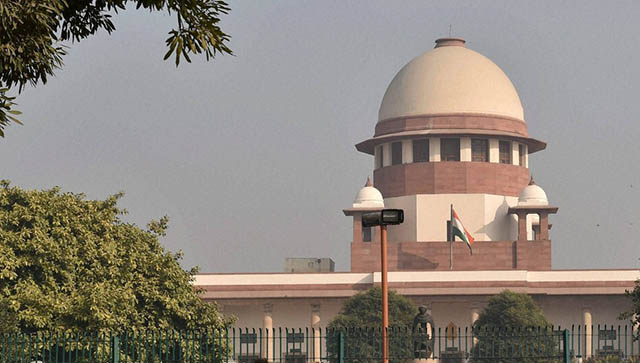The penal code in India was primarily governed by the Indian Penal Code (IPC), which was enacted in 1860 during British colonial rule. While the IPC had been amended multiple times, the basic structure remained colonial and treated people as subjects of colonial power rather than citizens of a free democratic nation. Besides, IPC had become woefully outdated in addressing contemporary challenges and complexities of society. Due to significant technological, cultural, and social changes, new types of crimes and legal issues emerged that were not adequately covered by the existing penal code. We also needed a more gender-sensitive legal framework to deal with gender-based crimes. The legal system had to be made more efficient and accessible to the most disadvantaged sections of society. Keeping this in mind, the Bharatiya Nyaya Sanhita Bill, Bharatiya Nagarik Suraksha Sanhita, and Bharatiya Sakshya Adhiniyam, 2023, were introduced to replace the Indian Penal Code, Criminal Procedure Code, and Evidence Act, respectively. BNS 2023 is a complete overhaul of IPC 1860, and it has dropped all redundant and outdated features of IPC 1860. BNS 2023 now has 358 sections instead of 511 sections in IPC. Nineteen sections have been totally repealed or removed. Twenty new crimes have been added, keeping in view the dynamics of changing society. Imprisonment sentences have been increased in 33 crimes, and the penalty of community service has been introduced in six crimes. Mandatory minimum punishment has been introduced for 23 crimes. Bharatiya Nagrik Suraksha Sanhita (BNSS) has 531 sections instead of 484 sections of CrPC, and a total of 177 provisions have changed. Fourteen sections have been completely repealed or removed. Nine new sections and 39 new sub-sections have been added. Forty-four new provisions and clarifications have been added and clarifications included. Similarly, in Bharatiya Sakshya Adhiniyam, a total of 24 provisions have been changed. It will now have 170 provisions instead of the original 167 that featured in the Evidence Act. A careful reading of BNS 2023 reveals that, for the first time in modern times, our laws have been made gender sensitive with emphasis on provisions that can act as deterrents for potential crimes against women. A whole new chapter titled ‘Crimes against Women and Children’ has been added to deal with sexual crimes. A new crime category of gang rape of a woman below 18 years of age has been added. A gang rape of a minor girl has now been made consistent with POSCO. There is also a provision of 20 years imprisonment in all cases of gang rape. An important and far-reaching change that protects women of all strata of society is that there now are targeted penalties for persons fraudulently engaging in sexual relationships or promising to marry without any true intention of marriage. While the international community is still struggling with a meaningful definition of Terrorism, BNS 2023 113(1) has a cogent definition of Terrorism. Given the extreme nature of terror crimes, Terrorist acts have been made punishable with death penalty or life imprisonment without parole. Destroying public facilities and private property or causing widespread damage to critical infrastructure are covered under this section. Organised crime has been defined for the first time by BNS 2023. This includes armed rebellion and subversive and separatist activities threatening the integrity and sovereignty of India. Economic offences like tampering with currency notes and any embezzlement in any financial institution are now covered under the organised crime section. Small organised crimes, too, are punishable with imprisonment of up to seven years. Mob lynching has been recognised under a new provision which takes into account murders committed on the basis of race, caste or community. Sedition no longer exists in the new penal code. There are no laws that penalise speaking against the government of the day; however, any acts or speech that threaten the sovereignty and integrity of India will attract punishment. Bharat Nagrik Suraksha Sanhita (BNSS) prescribes a time limit for initiation of criminal proceedings. A timeline has been added to 35 sections, which will make the speedy delivery of justice possible. BNSS allows reporting crimes against women through e-FIR. Including e-FIR for cognisable offences where the accused is unknown. Use of technology has been encouraged and approved at all stages of investigation till trial, which makes BNS 2023 the world’s most modern justice system. Technology will also be used to conduct search and seizure operations, including videography of the entire process of search and seizure. Checks and balances have been created to ensure police accountability, such as displaying information about attested persons prominently in every police station. Bharatiya Sakshya Adhniyam expands the definition of documents to include electronic or digital records, including messages, websites and locational evidence of smartphone or laptop. Statements obtained electronically are included in the definition of evidence. Electronic and digital records will now be treated as primary evidence, keeping in view the swift digitisation of India under Digital India. Bharatiya Nyaya Sanhita 2023 seeks to establish the cultural and legal identity of Independent India. The IPC 1860 imposed by external powers did not adequately reflect the values, traditions, and needs of the modern yet civilisational nation called India, which is Bharat. Replacing colonial laws provides an opportunity for India to take ownership of its legal system, enhancing a sense of empowerment and sovereignty. The author is a columnist and political commentator. Views expressed in the above piece are personal and solely that of the author. They do not necessarily reflect Firstpost_’s views._ Read all the Latest News , Trending News , Cricket News , Bollywood News , India News and Entertainment News here. Follow us on Facebook , Twitter and Instagram .
New legal system for Bharat: By India, for India and of India
Sunanda Vashisht
• January 9, 2024, 10:38:20 IST
Replacing colonial laws provides an opportunity for India to take ownership of its legal system, enhancing a sense of empowerment and sovereignty
Advertisement
)
End of Article